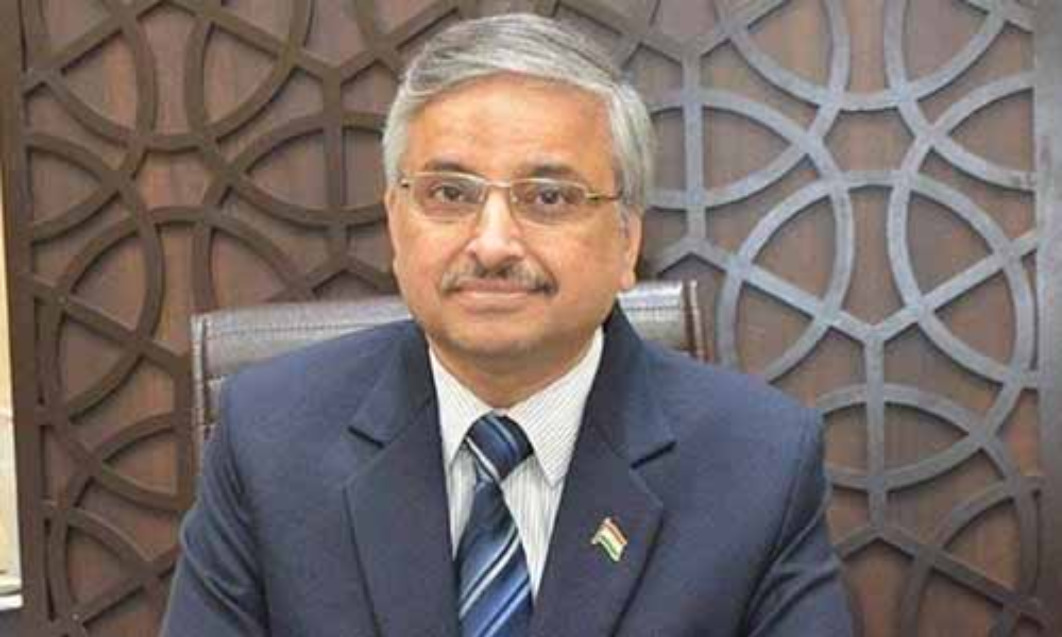The National Medical Commission (NMC) recently unveiled its revamped logo, sparking discontent among various medical practitioners, including the Indian Medical Association (IMA). The logo prominently showcases Dhanvantari, a Hindu deity associated with medicine, at its core, along with the term ‘Bharat’ inscribed above it. This move replaces the previous emblem featuring the Ashoka emblem.
According to reports from The New Indian Express, the introduction of the new logo occurred surreptitiously without official notification to the media or the public. Dr. Sharad Kumar Agarwal, the national president of the Indian Medical Association, criticized the alteration as “unnecessary” and urged a renewed emphasis on medical education, stating, “They [NMC] are not a political body and should not have political aspirations or try to please their political bosses.”
Echoing similar sentiments, Dr. Sulphi Noohu, Kerala’s president of the Indian Medical Association, emphasized the need for a more secular approach in the logo, calling for rectification.
The logo change has also faced resistance from medical students. Citing concerns, one student criticized the NMC’s previous recommendation to replace the Hippocratic Oath, branding it regressive and anti-women. Meanwhile, another student from Ernakulam Medical College perceived the logo change as a step toward the saffronization of the education sector by ideological groups.
Orthopaedic surgeon George M. Srampickal cautioned against intertwining religion and politics with the medical profession, highlighting potential serious consequences for people’s lives.The controversy surrounding the logo has extended to social media, with doctors expressing their dissatisfaction and outrage over the NMC’s decision.
 source: thehealthcaredaily
source: thehealthcaredaily
Table of Contents
Toggle
- The New Logo Depicts of NMC Dhanvantri, but Who is Dhanvantri?
- What is Ayurveda?
The New Logo Depicts of NMC Dhanvantri, but Who is Dhanvantri?
Dhanvantri holds a significant place in Hindu mythology as the divine physician, he is often considered the originator of Ayurveda, the ancient system of medicine. His significance transcends mere folklore, with his legacy deeply rooted in Indian culture and healing practices.
In Hindu scriptures, Dhanvantri emerges during the churning of the cosmic ocean (Samudra Manthan) by the gods (Devas) and demons (Asuras) to obtain the elixir of immortality (Amrita). As the churning ensues, various celestial treasures arise, among them being Dhanvantri, holding a pot of the elixir. He is often depicted as a handsome individual adorned with divine attributes and carrying medicinal herbs or a pot overflowing with nectar.
Dhanvantri’s arrival symbolizes the bestowal of healing knowledge and the boon of health upon humanity. His teachings and discoveries in Ayurveda encompassed holistic approaches to medicine, emphasizing the balance of mind, body, and spirit. This ancient medicinal wisdom passed down through generations, laid the groundwork for Ayurvedic practices that continue to be relevant in contemporary holistic healthcare.
Throughout history, Dhanvantri has been revered as the divine embodiment of health and well-being. Temples dedicated to him are scattered across India, and his presence remains a focal point during traditional ceremonies and rituals related to health and healing.
Beyond his mythological origins, Dhanvantri’s legacy endures in the ethos of medicine and wellness. He represents not just a deity but an emblem of the healing arts, promoting the idea of healthcare as a sacred practice aimed at restoring harmony within individuals and the universe.
In modern times, Dhanvantri’s influence resonates in the symbol of health and medicine, inspiring practitioners to uphold ethical standards and compassionate care. His essence continues to permeate the ethos of healing, reminding practitioners of the sacred responsibility of nurturing and restoring health for the betterment of humanity.
What is Ayurveda?
Ayurveda, often considered the ancient science of life, traces its roots back to the Indian subcontinent over 5,000 years ago. Derived from the Sanskrit words “Ayur” (life) and “Veda” (knowledge), Ayurveda is a holistic system of medicine that emphasizes a balanced approach to overall well-being, integrating the body, mind, and spirit.
At its core, Ayurveda is built upon the belief that the universe is made up of five elements—earth, water, fire, air, and ether (space)—and that these elements exist within every individual in varying proportions, creating a unique energy or dosha composition: Vata (air and ether), Pitta (fire and water), and Kapha (earth and water). Maintaining a harmonious balance among these doshas is central to good health, while imbalances are believed to lead to ailments.
The practice of Ayurveda involves understanding an individual’s Prakriti, or inherent constitution, which determines their physical, mental, and emotional characteristics. Based on this assessment, personalized treatments and lifestyle modifications are recommended to restore balance and promote well-being.
Ayurvedic therapies encompass a wide array of approaches, including herbal medicines, diet and nutrition, yoga, meditation, massage, detoxification techniques, and lifestyle recommendations according to an individual’s doshic balance. The use of natural remedies derived from plants, minerals, and animal products is a hallmark of Ayurveda. These remedies are often prepared in specific formulations and combinations to address various health concerns.
In Ayurveda, health isn’t merely the absence of disease; it’s a state of vibrant vitality and balance across all aspects of life. Prevention plays an important role, with emphasis placed on maintaining equilibrium through proper diet, routine, exercise, and mental well-being.
The philosophy of Ayurveda extends beyond physical health, embracing the interconnectedness of the body, mind, and spirit. It acknowledges the influence of environmental factors, seasons, emotions, and lifestyle choices on an individual’s health. Stress reduction, emotional balance, and spiritual growth are integral components of Ayurvedic practices.
While Ayurveda has garnered global interest and recognition for its holistic approach, it’s important to seek guidance from qualified practitioners and integrate Ayurvedic treatments with conventional medicine, especially in complex health conditions. As Ayurveda continues to evolve, its emphasis on personalized well-being, natural healing, and harmonizing with the rhythms of nature remains a timeless and valuable aspect of holistic health care.





